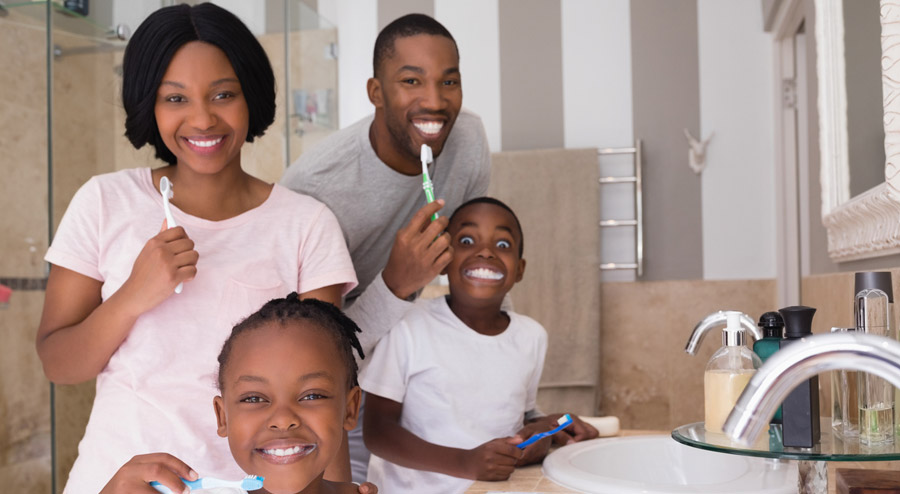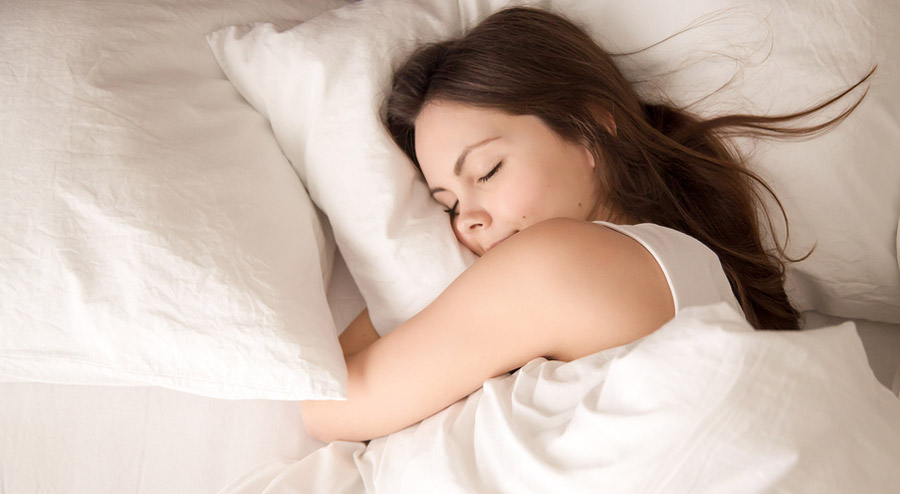Stop Clenching Teeth: Our At-Home Remedies

When left untreated, bruxism or teeth grinding symptoms can quickly get worse once they have manifested and include jaw clenching. An occasional twang or ache in the jaw muscles may become persistent and debilitating. Depending on the severity there may even be long-term damage done to the teeth, nerves, and jaw bone. Therefore, it is important to address the possible causes of bruxism.
Bruxism can occur during the day or at night while asleep. The most common recommendation from dentists who suspect bruxism are twofold: Be more mindful of your jaw activity during the day and wear a nightguard at night. The dentist is usually happy to make you a custom nightguard that costs hundreds of dollars, but drugstores sell a much cheaper alternative.
Night guard
The purpose of the night guard, also known as a mouth guard, is to provide a layer of cushioning between the top and bottom teeth. It does not prevent you from clenching or grinding, but it does greatly reduce the amount of damage to the teeth that may result. You can make your own nightguard for a few dollars with a kit from your local drugstore. These kits consist of a moldable mouthpiece and sometimes a tray to help with getting the right fit. The instructions may vary slightly but basically, the mouthpiece is softened in boiling water, allowed to cool for a few seconds, and then pressed into and molded around the top teeth to create a fitted piece. This is worn every night and after a week or two sensitivity symptoms should dissipate. If your problem is due to clenching your teeth, however, you might still have some soreness in your jaw or headaches upon waking up. If this is the case or if the problem is daytime unconscious clenching, then try one of these other at home remedies.
Stress Relief

Identifying possible causes of stress is the first step. If you can take action to deal with the causes then that could be helpful. In many cases, we worry about things that are out of our hands. For general anxiety, you may be able to find some relief by incorporating specific activities into your daily routine that aim to relax and calm you, such as meditation and aromatherapy. There are plenty of free smartphone apps that can guide you through meditation practices, even at the beginner stage. Download one of these and aim to take ten to 15 minutes per day practicing quiet and mindful meditation.
Aromatherapy and essential oils are frequently recommended as a way to boost or modify your mood. Scents can be incorporated in many ways such as baths, aerial diffusion, and massage. Different scents are appropriate for different goals. Those looking for relief from stress tend to turn to peppermint, lavender, chamomile, and geranium among other scents. For more on this topic, check out this article.
Sleep

Along with making sure you have enough time in bed, you should also make sure the quality of your sleep is good. We frequently have trouble falling and staying asleep or getting to the proper levels of deep and REM sleep due to our habits before bedtime. Do not sleep with any sort of television on in the room and if you must use a screen within an hour of bedtime take advantage of features that filter out the blue light from the screen. Blue light suppresses the hormone melatonin, which is what induces sleep in our brains. Ideally, you should do a calming activity, like take a bath or read a book. You should also only use your bed for sleep since this can help train your brain and body to focus on sleep in this area.
Supplements
There is reason to believe that having a deficiency in vitamin C, magnesium, and B vitamins can cause anxiety and even insomnia. Increasing your consumption of foods containing these can reverse and improve your mood and quality of sleep. If you have trouble sleeping but do not want to take a prescription drug like Xanax, valerian root is a natural alternative that has sedative and anti-anxiety effects. Even though it is not a prescription it is always a good idea to consult your doctor before incorporating significant doses of any supplement in your diet. There may be interactions and side effects that you should be made aware of based on your personal health history.
Relate Posts to Read:
Gum Abscess Home Remedy: 10 Remedies You Should Know About
Medically Fact-Checked & Written by Our Dental Editorial Team
You can read more about our editorial guidelines by clicking this link and learn more about the Emergency Dentists USA editorial team here.


